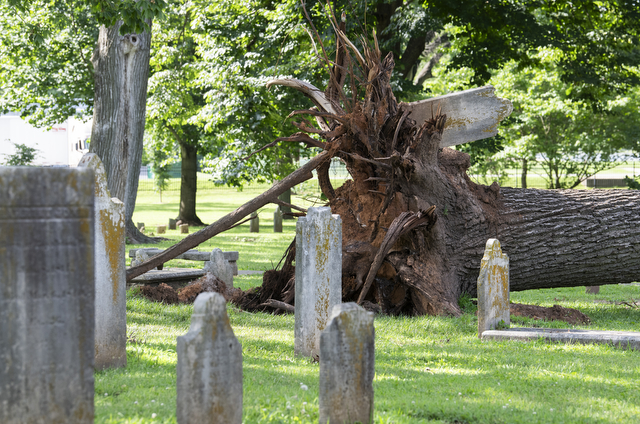Fight over coronavirus-related insurance claims spreads to Kentucky
Published 6:15 pm Saturday, April 25, 2020
Melanie Barker never planned to be on the front lines of a small business-versus-big insurance battle. But then the coronavirus pandemic happened.
Owner of Bowling Green’s ABC Children’s Academy day care center, Barker is now leading a group of some three dozen child care centers across Kentucky that are working on an issue that affects them and many other small businesses across the state and nation: denial of business interruption insurance claims arising out of the pandemic.
Barker and other members of her group are lobbying state and federal lawmakers and bureaucrats, seeking the kind of legislative or regulatory relief that has already been called for in a number of other states.
Their beef: Claims for insurance payments to compensate for loss of income during the pandemic are routinely being denied by an insurance industry that says this unprecedented business-destroying tsunami simply isn’t covered.
As American Property Casualty Insurance Association President and CEO David A. Sampson said in a prepared statement: “Many commercial insurance policies, including those that have business interruption coverage, do not provide coverage for communicable diseases or viruses such as COVID-19. Pandemic outbreaks are uninsured because they are uninsurable.”
Barker said she was told that, if her child care center was forced to close because it had an active case of the COVID-19 respiratory disease caused by the coronavirus, then she would be covered. Otherwise, she’s out of luck.
“As a licensed child care center, we’re required to have this insurance,” Barker said. “A lot of us have filed claims with insurance companies, and all are being denied.”
Barker said she has been getting the federal Payroll Protection Program payments that have helped her keep paying her employees, but that doesn’t cover all her expenses.
“We’ve been closed for five weeks, and we’re not making any money,” she said. “We still have to pay rent and utilities.”
Like Barker, Smart Start Child Care owner Paul Isenberg isn’t happy that his insurance company denied his claim for business interruption insurance.
“When the governor first said we would have to shut down, I thought it would be OK because I had the loss-of-income insurance,” said Isenberg, who owns multiple Smart Start locations. “But this is not considered a covered event. We thought this was the exact type of event it would cover. It was a punch in the gut to be paying these premiums for over 10 years and then be unable to get that covered.”
Isenberg, who isn’t part of the group Barker has put together, said he isn’t seeking any legal remedies just yet.
Neither is Barker, although she has enlisted the help of Brownsville attorney David Logsdon.
Logsdon said he has so far advised the group of day care owners pro bono because “these people are an important cog in the economic machine.”
If state or federal officials don’t provide some relief, Logsdon said he may eventually file a lawsuit on behalf of the day care centers, who he says are “captives of the insurance system.”
“The insurance companies usually leave themselves with several layers of defense to avoid paying claims,” he said. “They’re claiming they’re going to go broke, but there’s money there to pay these claims.”
The APCIA’s Sampson doesn’t agree.
In his prepared statement, Sampson said: “Any action to fundamentally alter business interruption provisions specifically, or property insurance generally, to retroactively mandate insurance coverage for viruses by voiding those exclusions, would immediately subject insurers to claim payment liability that threatens solvency and the ability to make good on the actual promises made in existing insurance policies.”
Despite such protestations, small businesses are lobbying state governments and, in some cases, taking insurance companies to court to try to recover losses from the pandemic. Logsdon pointed out that famed California restaurateur Thomas Keller has sued Hartford Fire Insurance Co. in an attempt to recover the same business interruption funds that the Kentucky day care centers are seeking.
Meanwhile, lawmakers in seven states – New Jersey, Ohio, Massachusetts, New York, Louisiana, South Carolina and Pennsylvania – have proposed legislation that would, in some cases, force insurance companies to cover coronavirus-related business interruption losses for companies with fewer than 100 employees.
Logsdon said the organizing effort spearheaded by Barker is a good first step toward getting some insurance relief for Kentucky small businesses.
“They’ve been in touch with the governor and with the state insurance commissioner,” Logsdon said. “These small businesses have to organize.”






